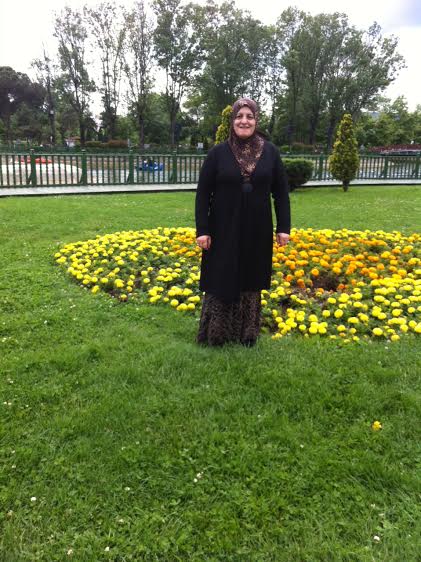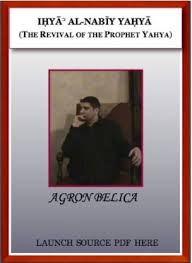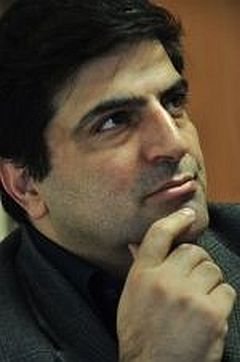Tag Archives: agron belica
Unleashed: “Them Crazies…Cutting up them Babies”
Patrick Smyth for Global News Centre
Published by Allyson Zoto
I first encountered Ace by chance several months ago whilst browsing some circumcision protest videos on youtube and was immediately struck by his songs: Day after day, and Leave those babies alone. What great tunes and such powerful lyrics. Also some superb graphics. This man really gets it!
For My Lady Feat. Agron Belica
Jay R. Crook, Ph.D. Global News Centre
For My Lady is a heartfelt tribute to the First Lady of the Belica household that includes a talented artistic husband and three active boys. Shakespeare had not met a woman like Gentiana Topalli when he wrote, “Frailty, thy name is woman.” Gentiana is slim, attractive, and ready with a gentle smile, but there is nothing frail about her. She is the strong, patient, and much-loved linchpin of the Belica household.
And she is a survivor and a savior:
A Master Of His Craft
Jay R. Crook, Ph.D. Global News Centre
In his latest song, Agron Belica throws down his gauntlet before the artistic world. While paraphrasing the wisdom of the revolutionary Spanish painter Pablo Picasso and invoking the spirit of the great Persian poet and mystic, Jallaluddin Rumi and his whirling dervish followers, Agron takes his stand and demands to be heard. Well done, Agron! Yours is a voice and a message to be reckoned with. Pay attention, world!
Crucifixion theory: “Misdirection at it’s best” - Agron Belica (New Video)
Global News Centre
(BOSTON) – Recent research embodied in a new book by Agron Belica invites our attention to the predicament of John the Baptist, popularly known for little more than the story of his beheading by order of Herod Antipas at the behest of a seductive dancing girl, the infamous Salome.
His book, The Passion of the Baptist, Not the Christ, arguing from the chronological and historical evidence provided by the ancient Jewish historian Josephus and the New Testament about John, demonstrates that the story of his beheading is almost certainly spurious. Comparison with the writings of Josephus gives the lie to this scenario for, as the detailed scrutiny and evaluation of Josephus’s text shows, Herod Antipas probably did not order John’s execution until 36 CE, half a dozen years later than most datings of the event of the crucifixion. Belica suggests that it was the Prophet Yahya (John the Baptist) who was placed on the cross and survived the ordeal and not Jesus, in a case of mistaken identity.
INFANT MALE CIRCUMCISION: A Violation of the Canadian Charter of Rights and Freedoms
INFANT MALE CIRCUMCISION
A Violation of the Canadian Charter of Rights and Freedoms
By ARIF BHIMJI, MD
Submitted by Agron Belica Global News Centre
THE ORIGINS of circumcision lie in the dim past. The earliest Egyptian mummies (2300 B.C.) bear the marks of circumcision, and wall paintings to be seen in Egypt show that it was customary several thousand years earlier still. Many reasons for this practice have been proffered, ranging from obeying the law of God to promoting public health.
Understanding circumcision is a formidable task. Religious requirements, ethical arguments, legal rulings, human rights issues, and medical study upon medical study threaten to overwhelm all but the most diligent researcher. The unwary are soon bogged down in a quagmire of myth and misinformation. Controversy has swirled around this practice, it seems, from the earliest times. Why all the fuss over a mere “piece of skin”?
The answer is that fundamental principles are at stake-principles that form the very foundation of ethics, law, and human rights. These basic precepts are not receiving due attention in the current debate over circumcision. Instead, circumcision is being looked at almost exclusively from the standpoints of public health and theology, as though these two frames of reference were the only ones that mattered. This paper, however, puts ethics, law, and human rights at the centre of the debate over circumcision. Read more here
The Revival of the Prophet Yahya by Agron Belica
Global News Centre
“The three essays by Agron Belica included in this little volume represent preparatory steps in the assembling of his revolutionary theories about John the Baptist/Yahya. The results of his studies achieved their full treatment in The Passion of the Baptist, Not the Christ, a controversial book that vigorously challenges the conventional view of John as little more than the baptizer of Jesus and the herald of his messiahship. The John/Yahya that Belica’s work has brought forth from the shadows of history is a major prophet in his own right with an independent stature and mission. These articles concentrate principally on the Islamic side of his theses.” —Dr. Jay R. Crook, author of The Bible: An Islamic Perspective series
Real Champions Serve Humanity
Jay R. Crook, Ph.D. Global News Centre
Almost four centuries ago, the English poet John Donne wrote the famous lines: “No man is an island entire of itself… any man’s death diminishes me, because I am involved in mankind… never send to know for whom the bell tolls; it tolls for thee.
Translations and Commentaries of the Quran May Need Revision
Global News Centre
For centuries, Muslims have assumed that John the Baptist (Yahya), like Jesus, never married or sired children. This is in accordance with Christian tradition, but, Belica argues, there is no cogent reason for Muslims to accept this belief. On the contrary, he says, this view of Yahya is inconsistent with the text of the Quran.
Albanian-American Author and Musician: “Leave those Babies Alone”
Tim King with Agron Belica Global News Centre
The #1 controversy facing American parents in 2010 was male infant circumcision. That’s quite a statement, but the real eye opener is the knowledge that it is needless, genital mutilation, and that it is dangerous, even potentially fatal, particularly for infants. In fact not a single medical group in the world.





 London
London

 Oregon
Oregon







































Was Jesus Crucified?
Spiritual Beast
In this book, Agron Belica offers a fresh interpretation of the momentous events on a hillock beyond the walls of Jerusalem nearly two millennia ago: the Crucifixion. Belica asks disconcerting questions about the received version of gospel “history” and gives free rein to his inquisitive nature. Many of his ideas and speculations will strike the casual reader schooled in the ancient Biblical Traditions with which they conflict as unhistorical, impossible, and unbelievable. Yet, when questioning established premises, the impossible may often be shown to be possible, as Socrates was fond of doing.